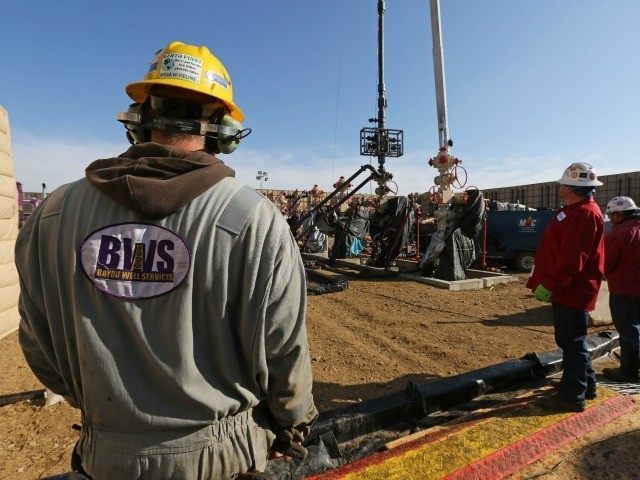The question as to whether a President Joe Biden would or would not ban fracking has two answers: He would “make sure” that hydraulic fracturing or “fracking” to produce oil and natural gas is “eliminated” while saying he would not ban the technique.
During the Democrat primary presidential debate in July in Detroit Michigan, moderator Dana Bash asked Biden: “Would there be any place for fossil fuels, including coal and fracking, in a Biden administration?”
“No, we would work it out,” Biden said. “We would make sure it is eliminated and no more subsidies for either one of those. Any fossil fuel.”
In an interview last weekend with a local show, This Week in Pennsylvania, Biden said he never has vowed to end fracking.
“I never told environmentalists that I’m going to ban fracking,” Biden said. “No 1. No 2, it’s a flat lie about what President Trump is saying.”
“I’ve said repeatedly on the record and during the campaign,” Biden said. “What I did say was I would make sure that any new fracking taking place – make sure the water supply and methane was not leaking. They’re the two things. That’s it. I will not ban fracking.”
But Biden’s campaign website reveals what oil and gas advocates are warning would happen if the former vice president becomes president:
Protecting America’s natural treasures by permanently protecting the Arctic National Wildlife Refuge and other areas impacted by President Trump’s attack on federal lands and waters, establishing national parks and monuments that reflect America’s natural heritage, banning new oil and gas permitting on public lands and waters, modifying royalties to account for climate costs, and establishing targeted programs to enhance reforestation and develop renewables on federal lands and waters with the goal of doubling offshore wind by 2030.
A recent American Petroleum Institute (API) analysis reveals the impact of halting the oil and gas production on federal lands:
Energy produced on federal lands and waters plays a critical role in America’s energy revolution, accounting for 12 percent of U.S. natural gas production and nearly a quarter of U.S. oil production.
According to a new OnLocation analysis, The Consequences of a Leasing and Development Ban on Federal Lands and Waters (Sept. 2020), U.S. energy leadership could be at stake if a federal leasing and development ban is enacted.
Some of the highlights from the analysis include:
• U.S. GDP could decline by a cumulative $700 billion by 2030.
• U.S. households could spend a cumulative $19 billion more on energy by 2030.
• National U.S. CO2 emissions could increase by an average of 58 million metric tons and keep rising to represent a 5.5% increase in the power sector by 2030.
The U.S. Chamber of Commerce’s Global Energy Institute also has weighed in on the energy landscape under a Biden administration, including a worsening environment.
“Over the past decade, the shale revolution in America has transformed our economy and reduced our emissions,” the Institute reported, noting how banning fossil fuels would “deliver a staggering blow to the economy.”
The analysis revealed what that impact would look like:
The analysis found that a ban on fracking would eliminate 19 million jobs between 2021-2025, while reducing U.S. Gross Domestic Product by $7.1 trillion over the same period. Energy prices would skyrocket, with natural gas prices rising by 324 percent, causing household energy bills to quadruple and the cost of living to increase by $5,661 for the average American. By 2025, the price of gasoline would double and government revenues would plummet by almost $1.9 trillion.
In addition to the economic boon, the rise of fracking has helped improve the environment. The report notes that carbon dioxide emissions have been reduced by more than 2.8 billion metric tons since 2005—roughly the equivalent of annual emissions from Australia, Brazil, Canada, France, Germany and the United Kingdom combined.
“Increased oil and gas production driven by hydraulic fracturing has been fueling America’s sustained period of growth over the past decade, while making us both cleaner and stronger,” Marty Durbin, president of the Institute, said of the analysis. “Our study shows that banning fracking would have a catastrophic effect on our economy, inducing the equivalent of a major recession and raising the cost of living for everyone across the country. This bad idea should be abandoned.”
Follow Penny Starr on Twitter

COMMENTS
Please let us know if you're having issues with commenting.